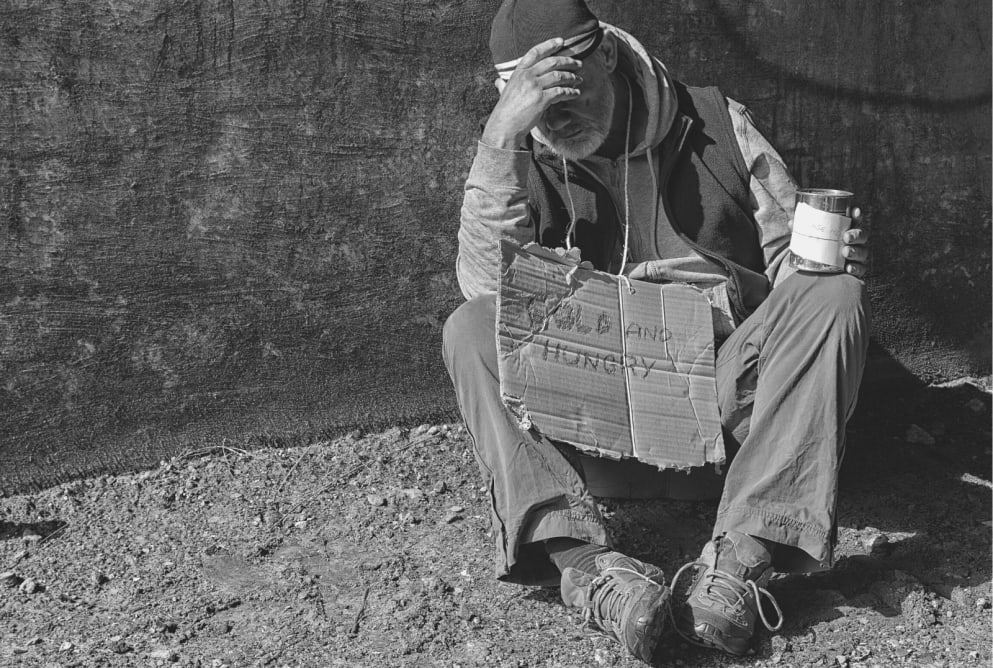Since the onset of the Covid-19 pandemic, cash transactions have declined by 35%. The handling of cash was deemed a health risk, a source of contamination and a sure-fire way to spread germs. As a result, we were all urged to make contactless payments. Businesses around the world were told 'card payments only'.
For those living on the street, it was a difficult time. But instead of focusing on the negatives, perhaps the dawn of a cashless society is a blessing in disguise.
Here we're looking at how the cashless society has impacted the homeless and using this as a vehicle for sustained change.
A lonely lockdown
Getting through the pandemic wasn't easy for anyone. Being distanced from family and friends and confined to the same space day after day took its toll. For the homeless, the situation was a nightmare of epic proportion.
There was nobody out and about to respond to requests for spare change during the lockdowns. Once restrictions were lifted, fewer people carried cash, opting instead for contactless payments. Combined with mammoth efforts to move those living on the streets indoors, the opportunity for the homeless to access funds of any kind was non-existent.
However...
Whilst it's easy to blame the pandemic, it's important to remember that the decline in our use of cash isn't solely a result of the pandemic. We've headed towards more convenient ways to spend our money for a while now. The introduction of contactless payments has only served to speed up the inevitable.
A social responsibility
Let's stop for a minute and look at this another way. Is relying on begging on the street an acceptable way for people to live? The answer is a very firm no.
A flawed benefits system. A lack of affordable housing. A rise in living costs. The under-funding of drug and alcohol rehabilitation support. An inadequate response to victims of domestic violence. These are just some of the genuine social concerns that can't be addressed by passers-by throwing pennies into a cup.
Homelessness is society's problem. We all need to work together if we're going to make any progress. The cashless society is exposing this in a big way. It's a thought that's starting to catch on.
Making progress
In the words of our outreach team, HSBC has been real 'trailblazers' here. Their No Fixed Abode bank account has been invaluable to those who have work opportunities but don't have traditional I.D documentation or proof of address. In a simple initiative, HSBC has enabled people to earn a living and take control of their future.
It's now possible for those selling the big issue to do so using contactless technology. Those that do have seen an increase in sales of up to 30%.
Moving towards a cashless society might be the opportunity we need to shine a light on the social changes we need to make to tackle the cycle of homelessness. It's about making sustainable changes. It's time for the government to step up and drive that change home. And we're not just talking about the homeless, but for society as a whole.
In the meantime, there are so many ways to help someone living on the street. Getting involved in our fundraising events, making regular donations, or even a simple acknowledgement or 'hello' can go a long way. We're always grateful for your support. Don't hesitate to get in touch if you'd like more information about working with us.
